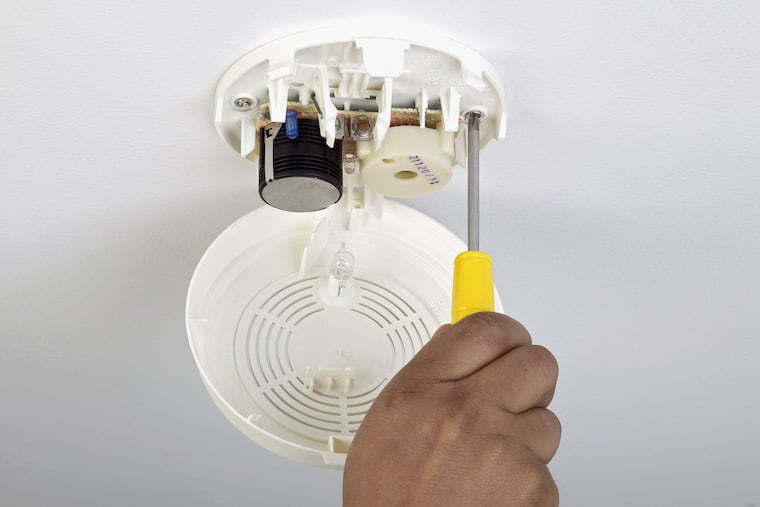Why do smoke alarms keep going off even when there’s no smoke?
The most common reasons smoke alarms go off with no apparent reason are low batteries and steam from a nearby bathroom.

You’re in the middle of cooking dinner, and the smoke alarm goes off, sending your pets and children scurrying. It happens so often that you’re tempted to disable the alarm, but you know it’s an essential safety feature.
So how do smoke alarms work? And why do they sometimes go off for no apparent reason? MVS Chandrashekhar, a professor of electrical engineering at the University of South Carolina, explains.
There’s no smoke. Why is smoke detector bleating?
The most likely reason smoke detectors go off unexpectedly is that people aren’t changing the batteries often enough. Most smoke detectors are designed to go off when their electrical current goes down. That’s because smoke in the air will reduce the current. If your battery is dying, the current that’s flowing through your sensor also goes down. And so you can get a false positive. People often install the battery when they move into the house and then never touch it after that. The battery is supposed to be changed every six months or so, but most of us don’t.
The second most common cause of false positives is having your smoke detector too close to a bathroom. If you take a hot shower, the steam can, in some cases, cause false positives because the steam can block the flow of the current, just as smoke does.
Volatile organic compounds in paints — the stuff that keeps your paint wet but also lets it dry — or other chemical treatments in the house can set off these alarms, as well. It just depends on how the sensor is tuned.
How do smoke detectors work?
Inside your smoke detector, there’s a small Americium-241 radiation source that’s a byproduct of nuclear fuel. It emits alpha particles, which you can think of as little bullets. These little bullets come out of the source and hit air molecules to break them apart.
When that happens, some broken pieces will be positively charged, and others will be negatively charged. And those two oppositely charged ones will be attracted to the negative and positive battery terminals in the smoke detector’s battery. This movement of charged particles is what we call electrical current.
If smoke is coming into the area where this breaking apart is happening, it will block the charged particles from moving, reducing the current. So, that lowered current is what your sensor interprets as, hey, there’s smoke here.
Is there a better smoke detector?
A newer kind of smoke detector is based on the photoelectric effect. It’s what Albert Einstein got the Nobel Prize for. When light hits something, it generates electric current — it’s very much like a mini solar cell. Engineers figured out how to tune a light source in a way that is sensitive to smoke.
The light can be shining, and you get current. But when smoke goes in, it will make the light scatter a different way, or block the light in a certain way, and that will change the amount of current that’s flowing. If it is tuned correctly, you can interpret that change in current as the presence of smoke. The photoelectric ones probably are more power intensive, so your battery life span may not be as good.
But, hey, you should be changing it every six months anyway.
This article is republished from The Conversation under a Creative Commons license.